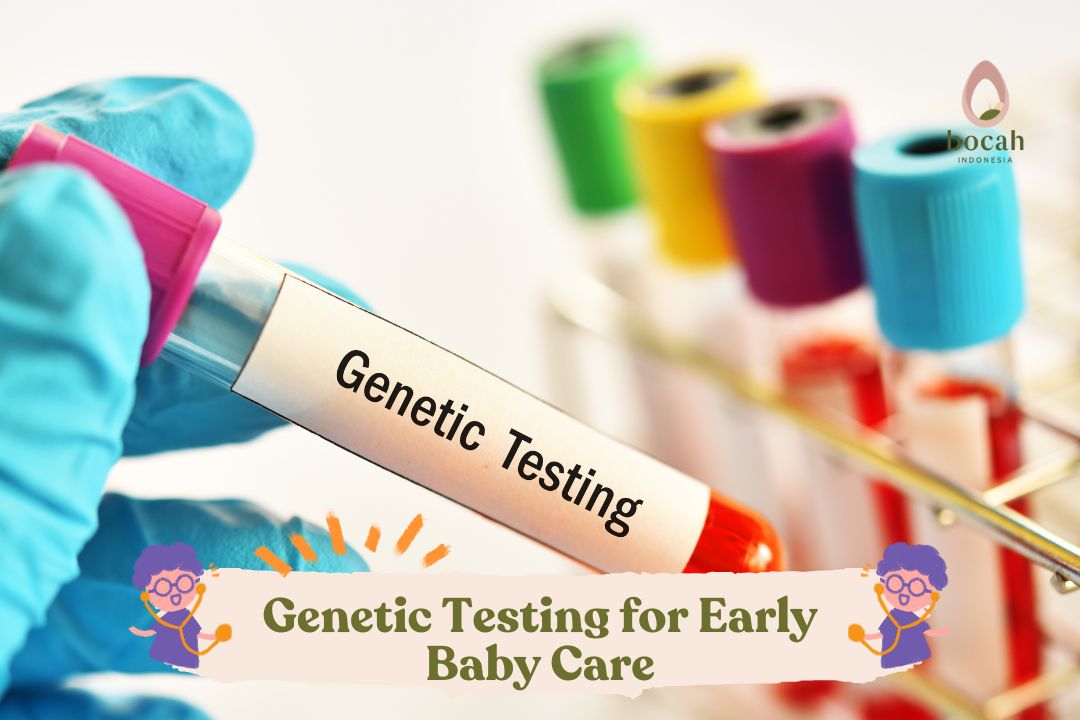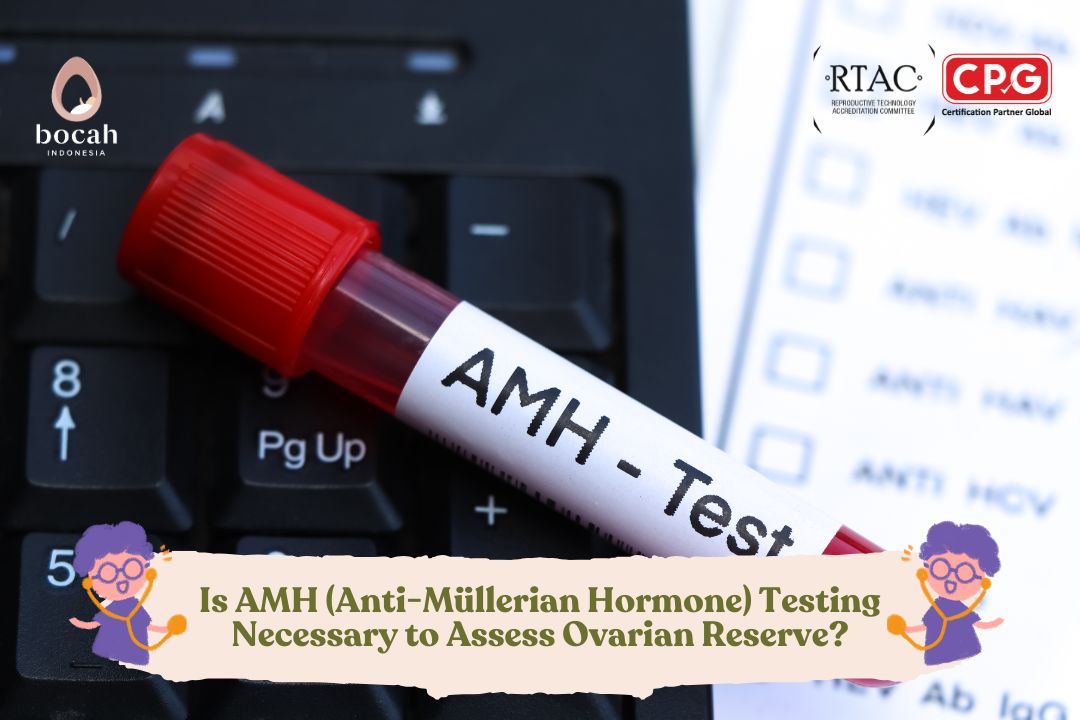Genetic Testing for Early Baby Care

If you are currently pregnant or planning to conceive, genetic testing can give you a closer look at your and your baby’s health.
Before pregnancy, genetic testing examines the parents’ genes to indicate the likelihood of the child having genetic disorders. Although mostly optional, these tests can help you make informed health decisions and know what to expect when the baby is born.
Some tests can check the baby’s medical conditions while they are still in the womb. There are also tests that examine their DNA to detect certain genetic diseases. Let’s find out the importance of pre-pregnancy genetic testing here.
Before Pregnancy: Genetic Carrier Screening Test
If you have a gene for a certain disorder but do not have the condition, it means you are a carrier and could pass it on to your child. You can undergo this test before or during pregnancy, but it is most useful before pregnancy.
In the process, the doctor will take a sample of blood or saliva for testing. The results can show various types of abnormalities, but the more common ones include:
Tanya Mincah tentang Promil?
- Cystic Fibrosis
- Fragile X Syndrome
- Sickle Cell Disease
- Tay-Sachs Disease
- Spinal Muscular Atrophy
It’s also important to note that individuals from certain ethnic groups are more likely to be carriers of certain diseases. Consultation with a doctor can help you understand this aspect.
First Trimester Screening Tests
After becoming pregnant, your doctor may recommend genetic tests to assess the risk of medical issues. Typical tests during the first stage of pregnancy include:
1. Cell-Free Fetal DNA Test
The blood of a pregnant woman contains some of the baby’s DNA. After 10 weeks, the doctor collects a sample and tests it in the laboratory to look for signs of Down syndrome, trisomy 18, trisomy 13, and issues with sex chromosomes.
2. Sequential Screening
This test uses a combination of ultrasound and blood tests to assess the risk of Down syndrome, trisomy 18, as well as spine and brain problems. The test is conducted between 10 and 13 weeks of pregnancy, and if the results are negative, the pregnant woman may opt for additional testing in the second trimester.
3. Integrated Screening
The process and goals of this test are similar to those of sequential screening. The test is usually conducted around 12 weeks, and the second part occurs in the second trimester. This test is slightly more accurate than sequential screening. However, it takes longer to get results, as it requires the completion of the second part of the test.
For your information, if any of the screening tests indicate a risk of birth defects, the doctor will recommend diagnostic tests to confirm the results. The cell-free DNA test does not look for brain or spine problems. You can undergo another blood test in the second trimester to detect these issues.
Tests for the father are also necessary. Some diseases can only be inherited if both parents carry the gene.
Second Trimester Screening Tests
During this stage of pregnancy, there are several follow-up tests from the previous stage. Here are some common tests your doctor may offer:
1. AFP Test (Alpha-Fetoprotein)
This test screens for neural tube defects. It’s usually performed if the patient has already undergone a cell-free DNA test that does not screen for this type of defect.
2. Serum Screening
This blood test looks for proteins in the blood indicating a higher risk of the baby being affected by Down syndrome, trisomy 18, and spine or brain issues. The doctor can conduct this test between 15 and 21 weeks.
3. Integrated Screening
If you had the first part of this test in the first trimester, the second part will be conducted between the 16th and 18th weeks.
4. Ultrasound (Ultrasonography)
Around the 20th week, the doctor uses images to look for birth defects such as cleft palate, heart problems, and kidney issues.
Diagnostic Tests: Amniocentesis and Chorionic Villus Sampling (CVS)
Amniocentesis and CVS are used to check the baby before birth for possible birth defects such as Down syndrome, trisomy 13, trisomy 18, and brain or spinal cord issues. These tests can also detect some genetic abnormalities with 99 percent accuracy.
Most women do not undergo these tests. Some reasons include the very small risk of miscarriage and no issues indicated during screening tests.
However, screening tests are not 100 percent accurate. So, if screening results indicate a birth defect or if the most accurate test is desired, doctors will recommend CVS or amniocentesis.
CVS tests a small part of the placenta inside the womb. The doctor inserts a needle through the abdomen or a thin tube through the cervix. CVS is performed early in pregnancy between the 10th and 13th weeks. This test can cause cramping, bleeding, or infection in some women.
In the amniocentesis process, the doctor inserts a long, thin needle into the abdomen and into the sac surrounding the baby to remove a small amount of fluid. A laboratory studies the proteins and cells in the fluid.
This test is safest between the 15th and 20th weeks. Sometimes, amniocentesis can cause bleeding, cramping, or infection. If the doctor suggests one of these tests, it does not necessarily mean there is a definite problem with the baby-to-be. It means they want to make sure everything is okay or follow up on other screening test results.
So, that’s the importance of pre-pregnancy genetic testing. If you are planning a pregnancy, it might be a good idea to consult with your obstetrician about genetic testing before trying to conceive.
This article has been medically reviewed by Dr. Chitra Fatimah.
Source:
- Veyver, I. G. B. D. (2016). Recent Advances in Prenatal Genetic Screening and Testing. F1000 Research, 5: 2591. https://pubmed.ncbi.nlm.nih.gov/27853526/
- Center for Disease Control and Prevention (2021). What Is Thalassemia?
- National Institute of Health (2021). U.S. National Library of Medicine MedlinePlus. What is Genetic Testing?
- Mayo Clinic (2021). Hemophilia.
- Family Doctor (2020). Prenatal Diagnosis: Amniocentesis and CVS.
- Kids Health (2021). For Parents. Genetic Testing.
- WebMD (2020). Pregnant? Your Genetic Testing Options.




